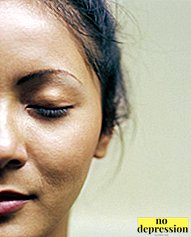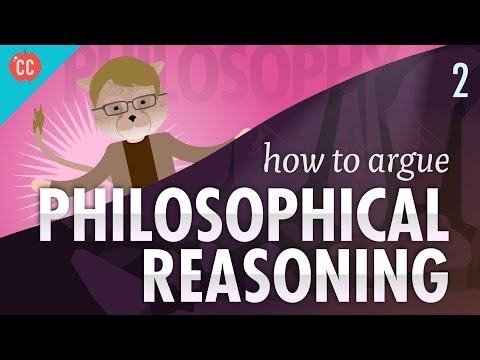 Aron wiesenfeld
Aron wiesenfeldEndogenous depression: the most pronounced of all
Endogenous (from the Greek. Endo - inside + genes - generated) - the term medical psychology and psychiatry, introduced by Paul Julius Mobius in 1892. Endogenous - arising, developing due to internal causes. Endogenous is usually understood to be hereditary.
Endogenous depression is a mental disorder caused by internal physiological processes.
As an official diagnosis, endogenous depression was recorded in the international classification of diseases ICD-9 under the codes:
- 296.19 Unspecified endogenous depressive states
- 311.1 Non-psychotic depressive disorders of endogenous etiology
In the new edition of ICD - 10, the diagnosis of “endogenous depression” does not occur, due to a change in the classification criteria. New codes assigned to endogenous depressive episodes:
- F32.9 Depressive episode, unspecified
- F33.9 Recurrent depressive disorder, unspecified
- F33.10 Recurrent Short-Term Depressive Disorder
The worst thing is that this disease can be a herald of a more terrible disease, namely, bipolar affective disorder. This is a huge risk! Endogenous depression affects the behavior and lifestyle of a person - isolation, absent-mindedness and irritability become common. A person ceases to be interested in what is happening around him, sleeps poorly, moves a little. Body weight can change quite strongly up or down.
Endogenous depression: causes of appearance
Genetic predisposition
This implies the transfer of inherited reduced adaptive capacity and impaired production in the body of neurotransmitters (serotonin, norepinephrine, dopamine), the lack of which occurs in all people suffering from depression. However, the presence of such genes does not mean an absolute guarantee of depression in a person. We recommend reading the article for more information about the causes of severe depression.
External stimuli
The trigger for the emergence of endogenous depression can serve as a strong stress. In addition, some medications and pathologies of a neurological nature can provoke the disease. Endogenous depression generated by external influences can progress independently and depend on the season or hormonal changes in the body.
It is worth noting that most often endogenous depression affects a certain type of people, namely: hard-core workaholics, perfectionists and those who want to do everything better than others (there is a child psychotrauma from the lack of unconditional love on the part of parents). And more often women and elderly people fall ill.
Endogenous depression: symptoms
- bad mood: the patient is constantly in a disgusting mood, grieves, often remembers the past in joyful colors. Here we will write down the angendony, as the loss of the ability to enjoy life and generally get some pleasure.
- inhibition, both motor and mental. The patient slowly thinks, speaks slowly and moves. At the same time, what he says may be unconnected and inconsistent.
- a dramatic change in body weight, both up and down, problems with the gastrointestinal tract
- bad, unstable sleep
- thoughts of suicide
- depersonalization: the patient stops expressing emotions when he perceives something
Manifestations of Endogenous Depression
Patient's well-being is apathetic, absent-minded and memory impaired. The patient is slowed down, the process of thinking slows down a lot, as a result of which he speaks very slowly and interprets the information he has heard from the interlocutor. In addition, people often fixate on one fact / idea and more and more often speak about the meaninglessness of their own existence.
The patient blames himself for all misfortunes, suicidal thoughts appear. The patient begins to lose their everyday skills and abilities, refuses to have sex and cannot adapt to society.
Physical condition also brings. A person in a state of depression often suffers from constipation, frequent urination and uncertain pain in the whole body. Significantly increases the risk of blood clots in the thickened blood.
Treatment of endogenous depression
 Aron wiesenfeld
Aron wiesenfeldEndogenous depression is treated only by an integrated approach: it is necessary to turn to a psychotherapist, he, in turn, will select a medicine in combination with a sufficiently long therapy.
If you are trying to cope with this depression yourself - everything is bad, you are either not ready for recovery, or you do not realize the depth of the problem. Do not despair if you want to be guaranteed a cure - you know what to do. Will it be hard? Yes! But life without depression is better and you deserve it!
Treatment of endogenous depression is based on the use of certain medications. Drugs are prescribed individually depending on the symptoms (antidepressants, sometimes tranquilizers). Modern antidepressants have a low chance of side effects. In this group are drugs such as fluvoxamine, fluoxetine and sertraline.
For the treatment and prevention of disease are used and mood stabilizers. The use of these drugs contributes to the normalization of the mental state and prevents the return of depressive symptoms.
One must be very vigilant when observing a patient who suffers from endogenous depression. When using antidepressants, the symptoms disappear alternately, that is, inhibition begins to decrease, but at the same time suicidal thoughts and obsessive states remain, and the patient during this period can harm themselves or others. In some cases, the selection of medicines can take up to six months, this is the norm.
Psychotherapy is used to treat endogenous depression. It helps to understand the causes of the problems and get to the roots of various types of fears and obsessive states. Without medication, psychotherapy will not cure all the effects of endogenous depression, as antidepressants normalize the disturbed metabolism. Complex is important!
Prevention after - extremely important
To prevent the exacerbation of the disease, it is necessary to continue to use antidepressants in small doses, to leave bad habits, as well as to eliminate excessive mental stress.
Getting rid of endogenous depression is very difficult forever. In order to avoid relapses, the patient must unswervingly follow the recommendations of the attending physician and tirelessly monitor their internal state. We recommend to learn more about the stages of treatment in the article about severe (deep) depression.
We remind once again: life without depression is disproportionately better than life with depression. And your treatment depends on you. You have much more opportunities to influence your condition than you think! Love yourself and remember that it is pointless to waste your limited time in this world under the weight of endogenous depression!



